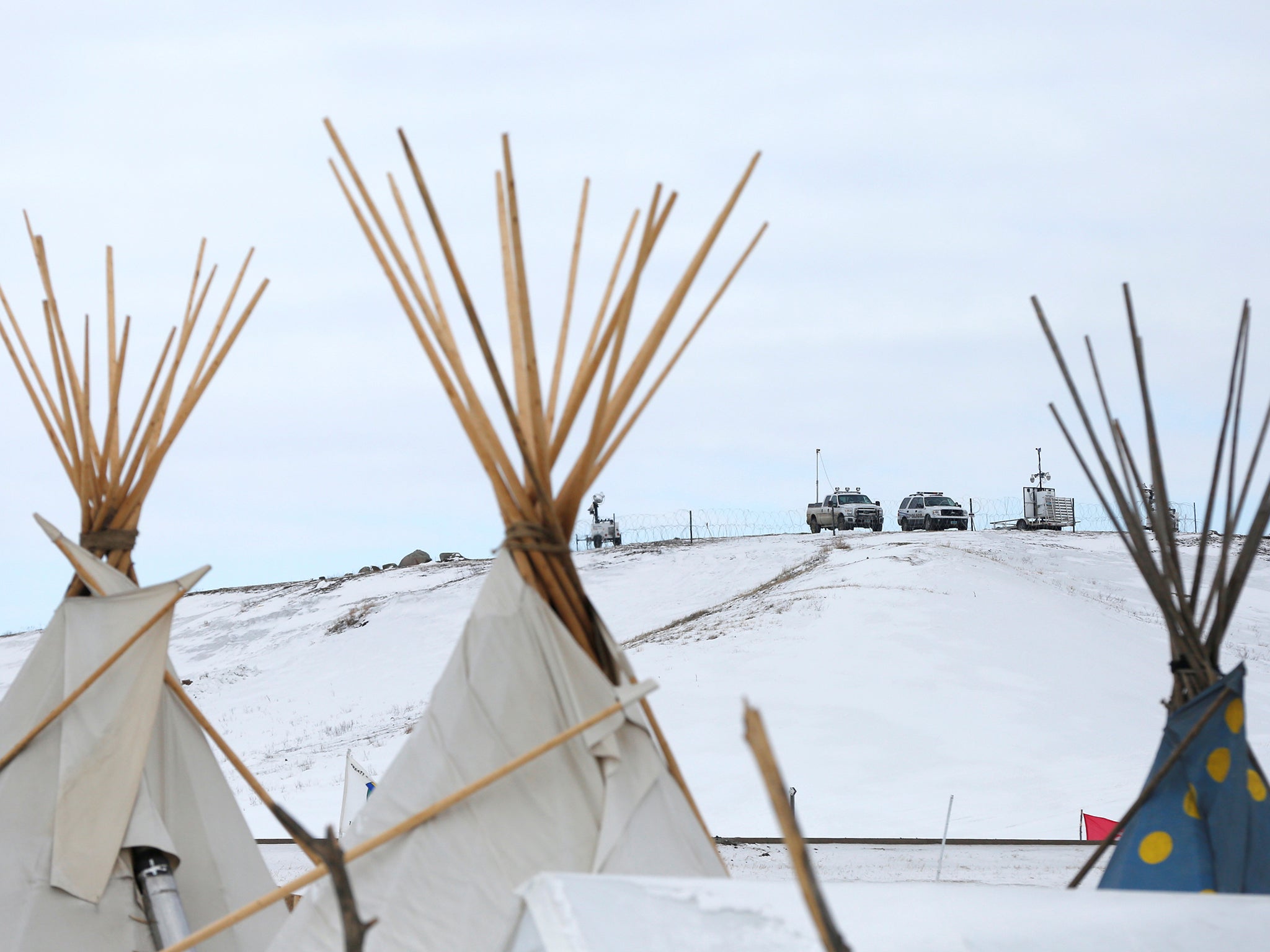Dakota Access oil pipeline: Standing Rock Sioux tribe 'running out of options' to stop project going ahead
Chairman says indigenous group still exploring legal avenues as developers circle

Your support helps us to tell the story
From reproductive rights to climate change to Big Tech, The Independent is on the ground when the story is developing. Whether it's investigating the financials of Elon Musk's pro-Trump PAC or producing our latest documentary, 'The A Word', which shines a light on the American women fighting for reproductive rights, we know how important it is to parse out the facts from the messaging.
At such a critical moment in US history, we need reporters on the ground. Your donation allows us to keep sending journalists to speak to both sides of the story.
The Independent is trusted by Americans across the entire political spectrum. And unlike many other quality news outlets, we choose not to lock Americans out of our reporting and analysis with paywalls. We believe quality journalism should be available to everyone, paid for by those who can afford it.
Your support makes all the difference.The leader of a Native American tribe attempting to block the Dakota Access oil pipeline has said the Standing Rock Sioux may have exhausted legal options to stop the project after the company building it won federal permission to tunnel under the Missouri River.
Legal experts agreed the tribe faces long odds in convincing any court to halt the $3.8 billion project led by Energy Transfer Partners LP, which could now begin operation as soon as June.
The US Army said on Tuesday it would grant the final permit for the pipeline after an order from President Donald Trump to expedite the project. The army owns the land through its Corps of Engineers.
“We're running out of options, but that doesn't mean that it's over,” David Archambault II, chairman of the Standing Rock Sioux Tribe, told Reuters in a telephone interview. “We're still going to continue to look at all legal options available to us.”
Native American tribes and climate activists have vowed to fight the pipeline, fearing it will desecrate sacred sites and endanger drinking water. Supporters say the pipeline is safer than rail or trucks to transport the oil.
The 1,170-mile (1,885 km) line will move crude from the shale oilfields of North Dakota to Illinois en route to the Gulf of Mexico, where many US refineries are located.
Public opposition has drawn thousands of people to the North Dakota plains, including high-profile political and celebrity supporters. Large protest camps popped up near the site, leading to several violent clashes and some 600 arrests.
The opposition sensed victory last year when the administration of President Barack Obama, a Democrat, delayed completion of the pipeline pending a review of tribal concerns and in December ordered an environmental study.
But those fortunes were reversed after Trump, a Republican, took office on January 20. Trump issued an order on January 24 to expedite both the Dakota Access Pipeline (DAPL) and to revive another multibillion-dollar oil artery, Keystone XL. The Obama administration had blocked that project in 2015.
On Wednesday, some 350 people converged in lower Manhattan, hoisting signs such as “Water is Life,” “Dump Trump” and “Respect Native Sovereignty.”
“This isn't just a Native American problem, this isn't just an issue over race, this goes way beyond that,” said Matene Strikefirst, who said he is a member of the tribe of Ojibwe and Dakota. “We need to get over our dependence on fossil fuels, we need to ensure drinking water for everyone.”
Another 100 gathered near the White House, denouncing Trump.
“We know there is going to be bloodshed,” said Eryn Wise, spokeswoman for the International Indigenous Youth Council.
“This is cultural genocide,” said Linda Black Elk, a resident of the Standing Rock Indian Reservation.
In a court filing on Tuesday, the Army said it would allow the final section of the DAPL to tunnel under Lake Oahe, part of the Missouri River system. The permit was the last bureaucratic hurdle to the pipeline's completion.
The tribe said on Wednesday it would attempt to use a “legal battle and temporary restraining order” to shut down pipeline operations.
But Wayne D'Angelo, an energy and environmental lawyer with Kelley Drye & Warren in Washington, said he believed the Trump administration was on “pretty solid legal ground.”
The tribe would have to prove a very difficult standard: that approval for the pipeline was “arbitrary and capricious, an abuse of discretion or inconsistent with the record before the agency,” D'Angelo said.
The protest camps dwindled after the Obama administration ordered the environmental review in December as the tribe urged people to leave due to concerns about trash buildup in a flood plain.
But a few holdouts have remained, including some who braved temperatures of minus 9 degrees Fahrenheit (minus 23 C) on Wednesday.
Reuters
Join our commenting forum
Join thought-provoking conversations, follow other Independent readers and see their replies
Comments